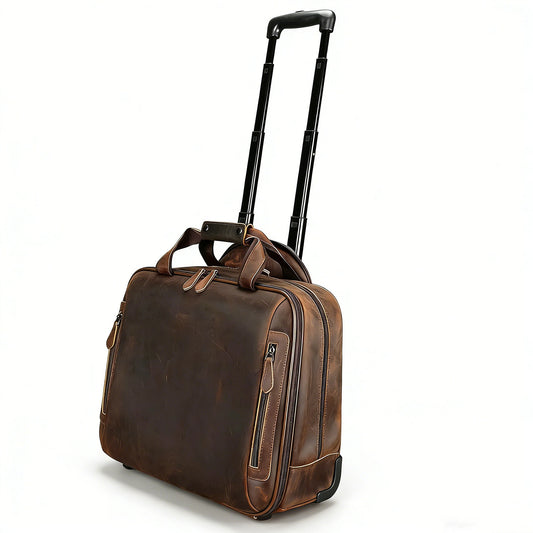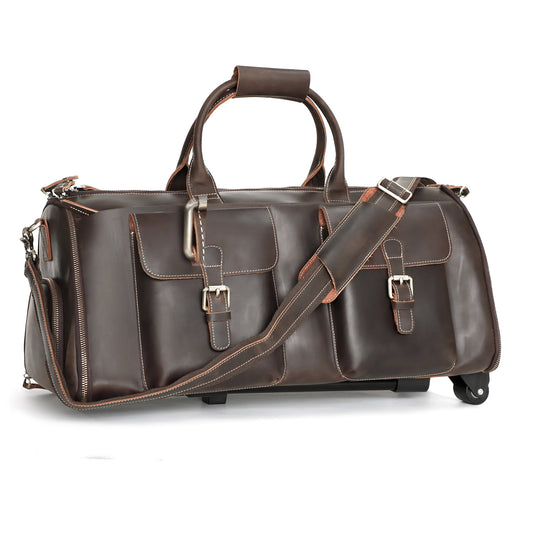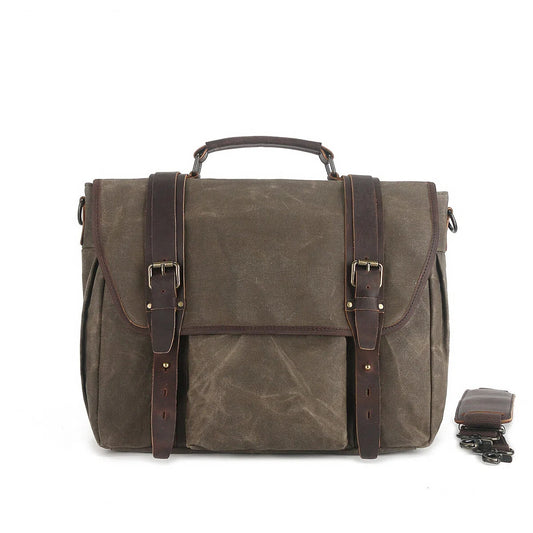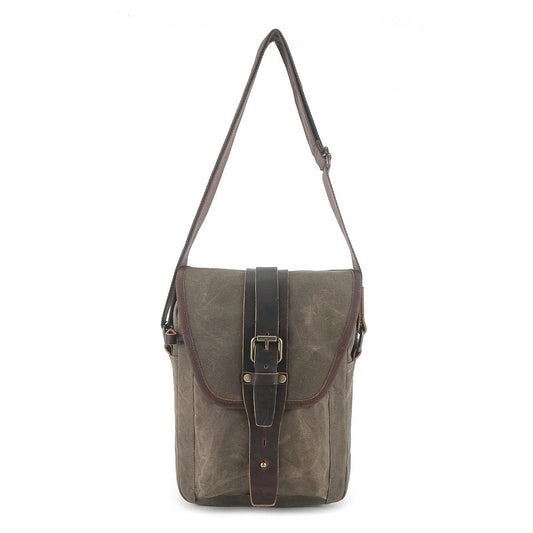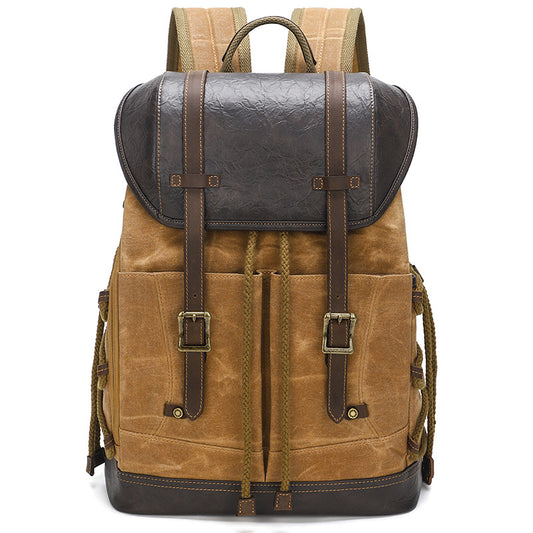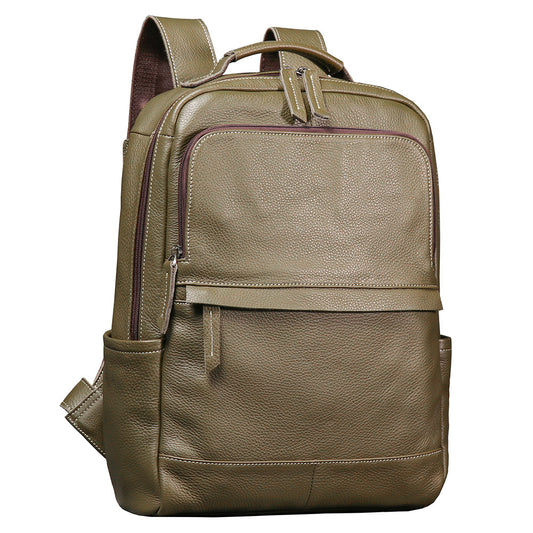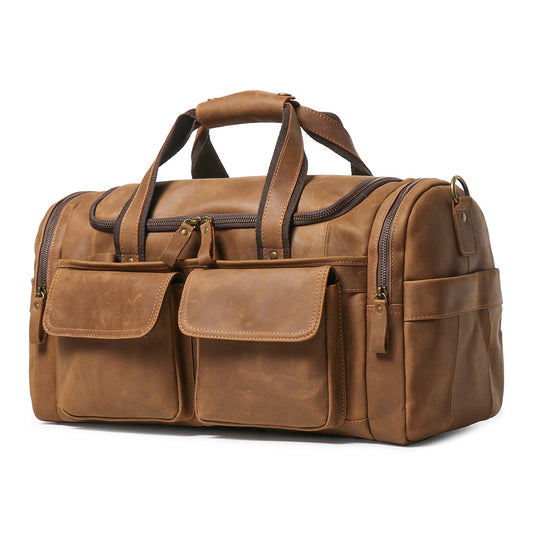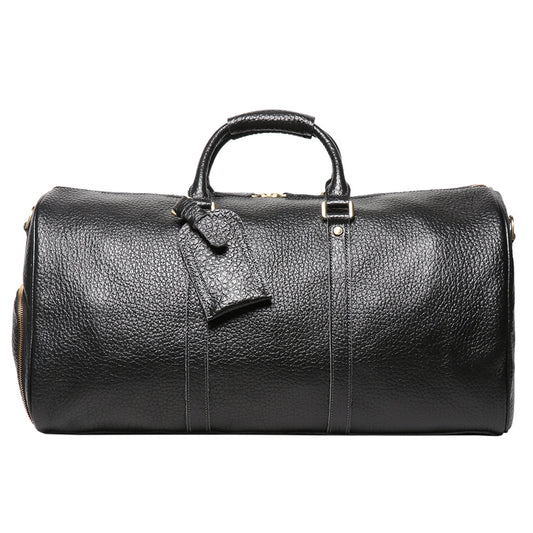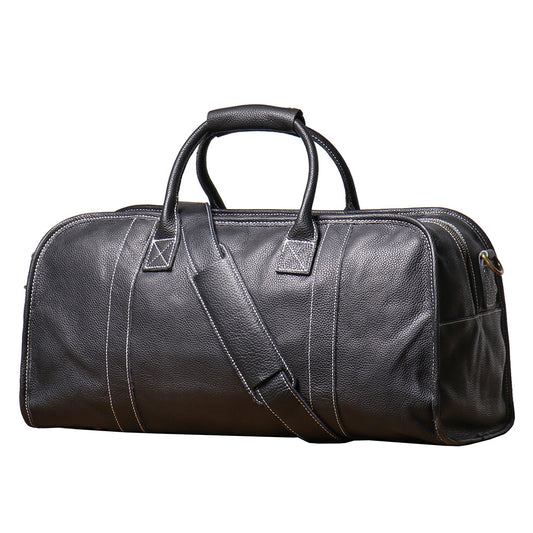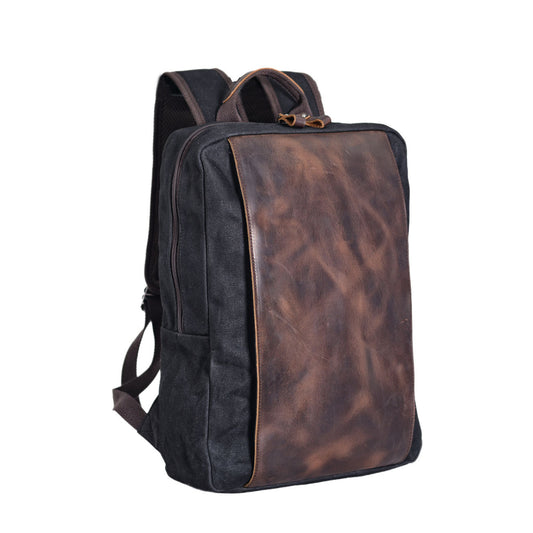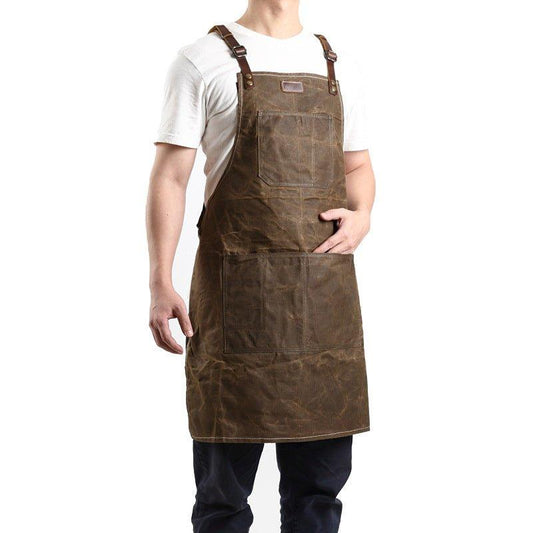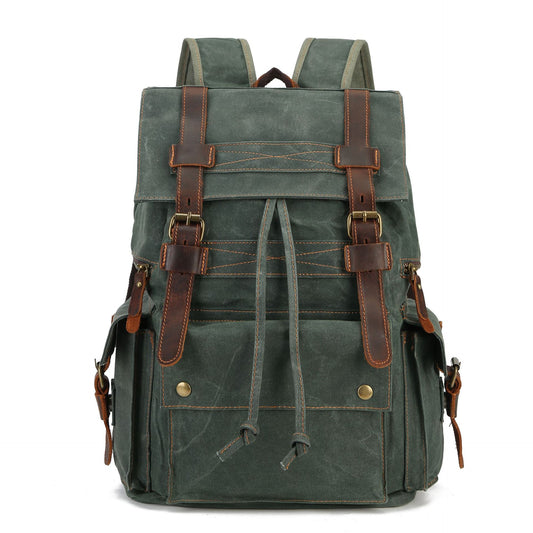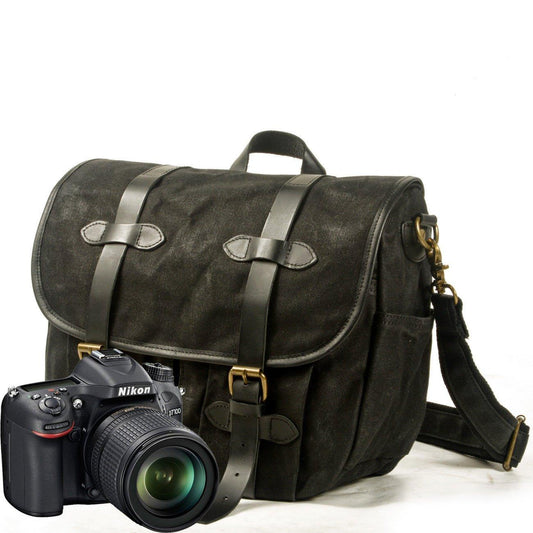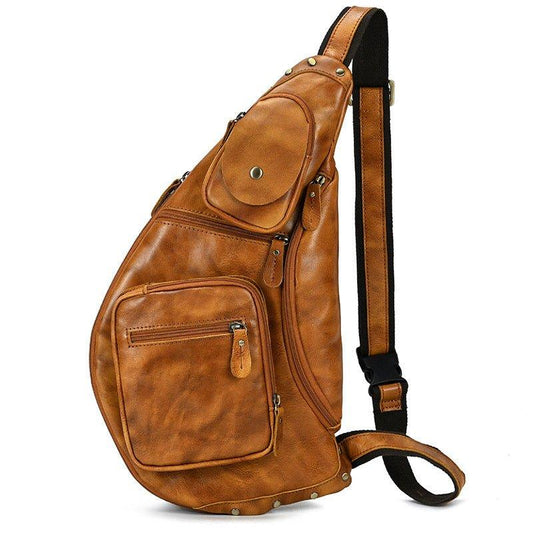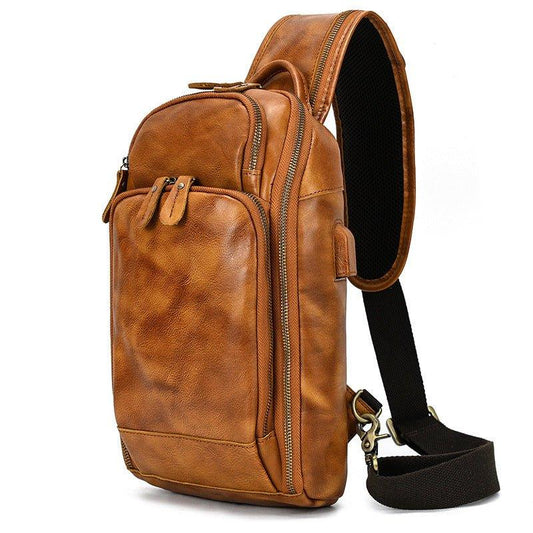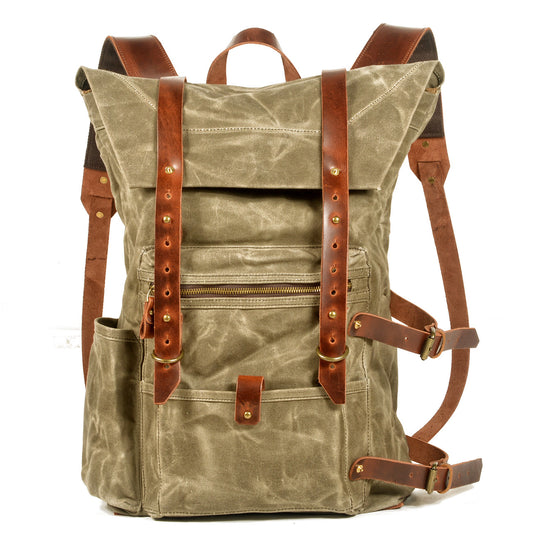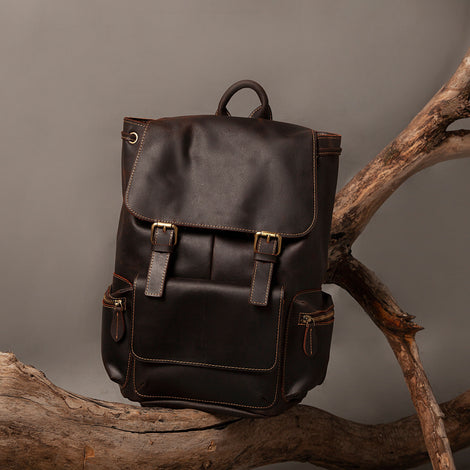So pflegen und erhalten Sie Ihren Vintage-Rucksack
Vintage-Rucksäcke sind nicht nur modische Accessoires – sie sind funktional, robust und erzählen oft eine Geschichte. Ob Sie sich einen schicken Canvas-Rucksack gekauft oder ein wertvolles Lederstück geerbt haben: Die richtige Pflege ist entscheidend, um seinen Charme und seine Langlebigkeit zu bewahren. In diesem Ratgeber zeigen wir Ihnen, wie Sie Ihren Vintage-Rucksack optimal pflegen und ihn über Jahre hinweg in Topform halten.
Inhaltsverzeichnis
| Themen zum Erkunden |
|---|
| Reinigung Ihres Vintage-Rucksacks |
| Richtige Lagerungstechniken |
| Pflegehinweise für Vintage-Lederrucksäcke |
| Pflege von Canvas-Rucksäcken |
| Schutz Ihres Rucksacks vor Umweltschäden |
| Kleinere Schäden und Risse beheben |
| Ihren Rucksack wasserdicht machen |
| Umgang mit Reißverschlüssen, Schnallen und anderen Beschlägen |
| Umgang mit Gerüchen in Vintage-Rucksäcken |
| Regelmäßige Inspektionen und Instandhaltung |
Reinigung Ihres Vintage-Rucksacks

Die richtige Pflege Ihres Vintage-Rucksacks ist entscheidend für seine Langlebigkeit. Beachten Sie daher immer zuerst die Pflegehinweise oder Etiketten. Bei den meisten Materialien empfiehlt sich eine schonende Reinigung. Verwenden Sie eine weiche Bürste, um Schmutz und Ablagerungen zu entfernen. Vermeiden Sie aggressive Chemikalien, die das Material beschädigen könnten, insbesondere bei Taschen aus Leder oder Canvas.
Richtige Lagerungstechniken
Die richtige Aufbewahrung trägt dazu bei, die Form Ihres Rucksacks zu erhalten und unnötigen Verschleiß zu vermeiden. Bewahren Sie Ihren Rucksack stets an einem kühlen, trockenen Ort auf. Stopfen Sie ihn mit Seidenpapier aus, damit er seine Form behält, und schützen Sie ihn mit einem Staubbeutel oder Kissenbezug vor Staub. Hängen Sie Ihren Rucksack niemals über längere Zeit auf, da sich das Material dadurch dehnen kann.
Pflegehinweise für Vintage-Lederrucksäcke
Lederrucksäcke benötigen besondere Pflege, um ihre Struktur und Haltbarkeit zu erhalten. Beginnen Sie damit, das Leder regelmäßig mit einem Lederpflegemittel zu behandeln, damit es geschmeidig bleibt. Vermeiden Sie längere direkte Sonneneinstrahlung, da diese das Leder austrocknen und Risse verursachen kann. Sollte Ihr Lederrucksack nass werden, lassen Sie ihn an der Luft trocknen, fern von Wärmequellen wie Heizkörpern oder Föhns.
Pflege von Canvas-Rucksäcken
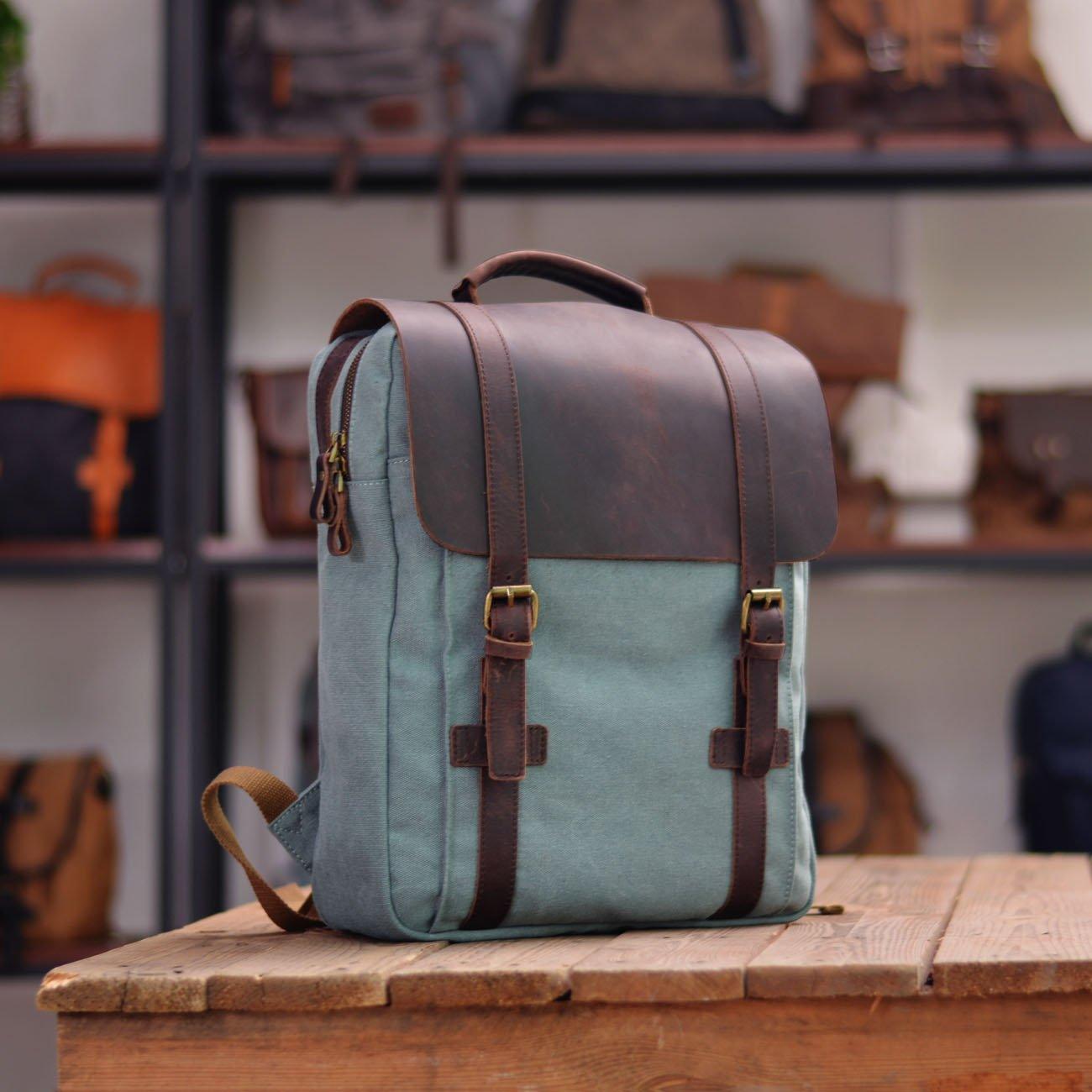
Canvas-Rucksäcke sind robust, benötigen aber dennoch Pflege. Kleinere Flecken lassen sich oft durch punktuelle Reinigung beheben. Verwenden Sie dazu ein mildes Reinigungsmittel, verdünnt mit Wasser, und ein weiches Tuch, um den Fleck abzutupfen. Für eine gründlichere Reinigung können Sie den Rucksack vorsichtig von Hand waschen und anschließend gründlich ausspülen, um Waschmittelreste zu entfernen. Lassen Sie den Canvas vollständig an der Luft trocknen.
Schutz Ihres Rucksacks vor Umweltschäden
Sowohl Leder als auch Canvas sind anfällig für Umwelteinflüsse wie Feuchtigkeit, starke Sonneneinstrahlung und extreme Temperaturen. Das Imprägnieren Ihres Rucksacks mit einem geeigneten Spray schützt ihn vor Wasserschäden. Vermeiden Sie es, Ihren Rucksack in feuchter Umgebung zu lagern, um Schimmelbildung vorzubeugen.
Kleinere Schäden und Risse beheben
Kleine Risse, kaputte Reißverschlüsse oder lose Nähte lassen sich mit dem richtigen Werkzeug leicht zu Hause reparieren. Ein einfaches Nähset hilft beim Flicken kleiner Löcher, und Wachs oder Graphit können klemmende Reißverschlüsse schmieren. Bei größeren Schäden empfiehlt es sich, den Rucksack zur Reparatur in eine Werkstatt zu bringen.
Ihren Rucksack wasserdicht machen

Ein wasserdichter Rucksack ist nicht nur praktisch, sondern verlängert auch seine Lebensdauer. Falls Ihr Rucksack nicht von Natur aus wasserdicht ist, können Sie ihn mit einem Imprägnierspray vor Regen und Spritzern schützen. Testen Sie das Produkt vorher unbedingt an einer kleinen, unauffälligen Stelle, um sicherzustellen, dass es die Farbe oder das Material Ihres Rucksacks nicht verändert.
Umgang mit Reißverschlüssen, Schnallen und anderen Beschlägen
Reißverschlüsse, Schnallen und Riemen sind unverzichtbare Bestandteile jedes Rucksacks, egal ob Vintage oder neu. Damit die Reißverschlüsse leichtgängig funktionieren, sollten Sie sie regelmäßig mit Reißverschlussfett oder -wachs behandeln. Überprüfen Sie Schnallen und Riemen auf Abnutzungserscheinungen und tauschen Sie sie gegebenenfalls aus, um plötzliche Beschädigungen zu vermeiden.
Umgang mit Gerüchen in Vintage-Rucksäcken
Vintage-Rucksäcke können mit der Zeit unangenehme Gerüche annehmen, besonders wenn sie lange gelagert wurden. Um diese zu entfernen, lüften Sie den Rucksack zunächst gründlich. Legen Sie ein Trocknertuch oder ein kleines Tütchen Backpulver hinein, um die Gerüche zu absorbieren. Bei stärkeren Gerüchen können Sie ein geruchsneutralisierendes Spray für Textilien verwenden.
Regelmäßige Inspektionen und Instandhaltung
Regelmäßige Kontrollen sind entscheidend, um Verschleiß frühzeitig zu erkennen. Überprüfen Sie alle paar Monate Nähte, Reißverschlüsse und Riemen genauer, um sicherzustellen, dass alles intakt ist. Die frühzeitige Erkennung von Problemen ermöglicht schnelle Reparaturen und verhindert weitere Schäden.
Häufig gestellte Fragen:
1. Kann ich meinen Vintage-Rucksack in der Waschmaschine waschen?
Das hängt vom Material ab. Die meisten Vintage-Rucksäcke, insbesondere solche aus Leder oder Canvas, sollten nicht in der Waschmaschine gewaschen werden. Am besten per Hand oder punktuell reinigen.
2. Wie oft sollte ich einen Lederrucksack pflegen?
Lederrucksäcke sollten je nach Nutzung und Klima alle drei bis sechs Monate gepflegt werden. In trockeneren Umgebungen kann eine häufigere Pflege erforderlich sein.
3. Kann ich Haushaltsreiniger für meinen Vintage-Rucksack verwenden?
Haushaltsreiniger sollten Sie vermeiden, da sie für empfindliche Materialien zu aggressiv sein können. Verwenden Sie stattdessen Produkte, die speziell für das Material Ihres Rucksacks entwickelt wurden.
4. Wie kann ich meinen Rucksack aufbewahren, ohne ihn zu beschädigen?
Bewahren Sie Ihren Rucksack an einem kühlen, trockenen Ort auf. Stopfen Sie ihn innen mit Seidenpapier aus und stülpen Sie einen Staubbeutel darüber, um ihn vor Staub zu schützen und seine Form zu erhalten.
5. Was soll ich tun, wenn mein Rucksack nass wird?
Sollte Ihr Rucksack nass werden, lassen Sie ihn an der Luft und fern von direkten Wärmequellen trocknen. Bei Leder tupfen Sie überschüssiges Wasser vorsichtig mit einem weichen Tuch ab.
6. Wie kann ich hartnäckige Flecken von meinem Canvas-Rucksack entfernen?
Bei hartnäckigen Flecken auf Leinwand versuchen Sie es mit einem milden Reinigungsmittel, vermischt mit Wasser, und einer weichen Bürste. Reiben Sie die betroffene Stelle vorsichtig ab.
7. Kann ich meinen Vintage-Rucksack mit Imprägnierspray behandeln?
Ja, Imprägniersprays können auf den meisten Materialien, einschließlich Leder und Segeltuch, verwendet werden, um Ihren Rucksack vor Wasserschäden zu schützen.
8. Wie kann ich verhindern, dass sich Schimmel auf meinem Vintage-Rucksack bildet?
Um Schimmelbildung zu vermeiden, bewahren Sie Ihren Rucksack stets an einem trockenen Ort auf und schützen Sie ihn vor Feuchtigkeit. Regelmäßiges Reinigen und Imprägnieren kann ebenfalls helfen.
9. Ist es sicher, kleinere Risse zu Hause zu reparieren?
Kleinere Risse lassen sich in der Regel mit einfachen Nähutensilien zu Hause reparieren. Bei größeren Schäden sollten Sie jedoch professionelle Hilfe in Anspruch nehmen.
10. Wie kann ich verhindern, dass die Metallteile an meinem Rucksack rosten?
Um Rostbildung zu vermeiden, halten Sie Ihren Rucksack trocken und schützen Sie ihn vor Feuchtigkeit. Sie können Reißverschlüsse und Schnallen außerdem regelmäßig reinigen und mit Schmiermittel behandeln.
Abschluss:
Die Pflege eines Vintage-Rucksacks erfordert etwas Liebe zum Detail, aber der Aufwand lohnt sich. Durch regelmäßige Reinigung, sachgemäße Aufbewahrung und die umgehende Behebung kleinerer Schäden stellen Sie sicher, dass Ihr Vintage-Rucksack über Jahre hinweg stilvoll und funktional bleibt. Lederrucksäcke profitieren von Pflegeprodukten, während Canvas-Taschen durch Fleckenreinigung und Imprägnierung optimal gepflegt werden. Regelmäßige Kontrollen helfen, potenzielle Probleme frühzeitig zu erkennen und Ihren Rucksack in Top-Zustand zu halten. Mit der richtigen Pflege altert Ihr Vintage-Rucksack mit Würde und verleiht Ihrem Stil Charakter und zeitlose Eleganz.
Lederrucksäcke von Woosir profitieren beispielsweise sehr von regelmäßiger Pflege, die das Material geschmeidig hält und vor Rissen schützt. Unsere Canvas-Rucksäcke hingegen sind für eine einfache Pflege konzipiert – Flecken lassen sich schnell entfernen oder gelegentlich schonend von Hand waschen. Mit einem Rucksack von Woosir investieren Sie in ein Produkt, das nicht nur gut aussieht, sondern auch pflegeleicht ist und so mit minimalem Aufwand in Topform bleibt.

